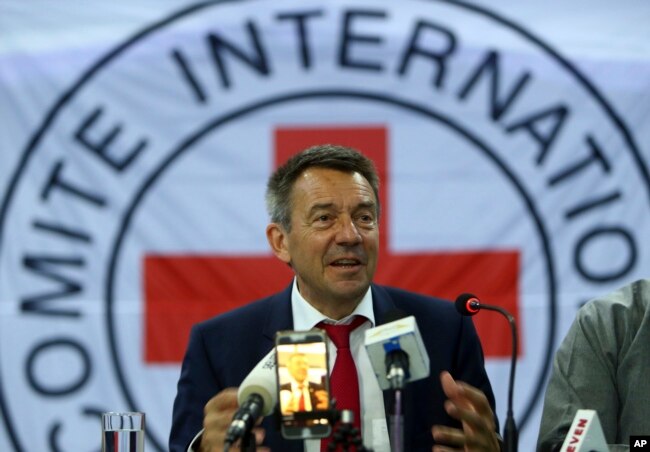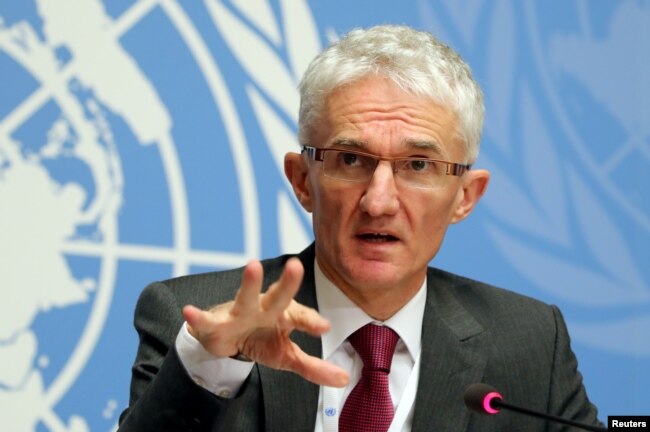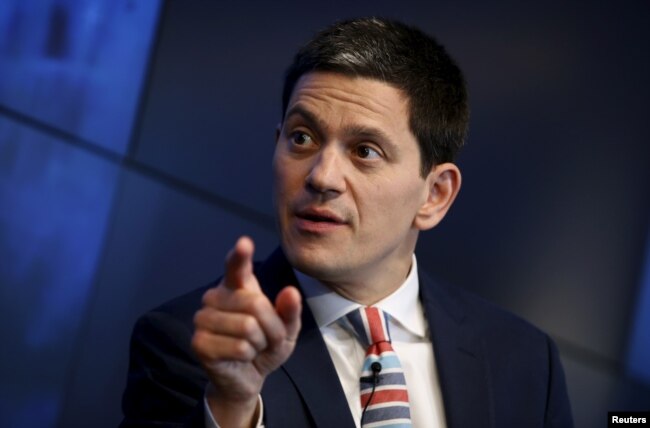Health and humanitarian workers in war zones are facing unabated and increasing attacks “and the impact on civilians is nothing but catastrophic,” the president of the International Committee of the Red Cross said Monday, VOA news reports.
Peter Maurer told an informal Security Council meeting that three years after the council adopted a landmark resolution urging all countries to take action to prevent violence and threats against medical and aid workers, “the evidence of meaningful change on the ground is scarce.”
“The taboo that warring parties would not attack aid workers has been trashed,” he said. “We need strong leadership, political will and determined action to restore this taboo.”
Maurer said health services in conflict “must be protected in a neutral humanitarian space and not be part of military strategies to defeat the adversary.” And he said “rhetoric and practices which exclude adversaries — for example those labeled ‘terrorists’ — from basic health services must stop,” and “public health regulations must not be tainted by political and military considerations.”
U.N. humanitarian chief Mark Lowcock told the council that when he started working on these issues over 30 years ago “there was a broadly shared assumption that in most circumstances warring parties would not attack aid workers.”
In the last years, however, he said, “humanitarian and medical workers have systematically become targets of attack.”
Last year, Lowcock said, 317 attacks against aid workers resulted in 113 deaths, according to the aid worker security database. And 388 attacks against health personnel or facilities resulted in more than 300 deaths, according to the World Health Organization, he said.
The undersecretary-general for humanitarian affairs called for better equipment and vehicles to improve security especially for local staff, saying about “94 percent of aid workers who were wounded, killed or abducted in 2018 were nationals of the country in which they were working.”
Lowcock said cooperation between civilian and military authorities is also important, explaining that this has enabled U.N. humanitarian staff to run the world’s biggest relief operation for between 8 million and 10 million people in Yemen in the last 12 months.
Trust is essential, he added, but it can only be sustained if governments don’t politicize assistance or criminalize engagement or aid to particular groups.
Time for action
David Miliband, president of the International Rescue Committee, told the council that with increasing attacks on aid and health workers, it’s time for action.
He called for an immediate and independent investigation of every aid worker’s death and urged governments to bring perpetrators to justice.
Miliband asked the council a series of questions including: “Will you block attempts to criminalize our ability to engage with armed actors in the name of counterterror restrictions? … Will you seek and speak the truth no matter how powerful the state, how sensitive the topic, or how uncomfortable the question?”
Miliband said IRC staff are waiting for action in Syria where they face increasing attacks, in Congo “where we are working to control an Ebola outbreak amid relentless arson attacks against treatment centers,” and in Yemen, “where Houthi [rebels’] land mines and [Saudi-led] coalition airstrikes mean humanitarians risk their lives with every movement.”



